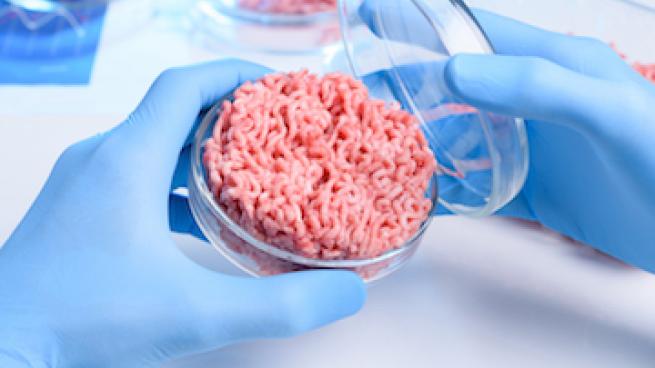By Nithya Caleb
A new report on cellular food finds consumer interest in cultivated meat has increased in recent months.
A new report on cellular food finds consumer interest in cultivated meat has increased in recent months.
The Canadian Foodtech Trends: Interest and Curiosity in Cellular Food Continues to Grow report, co-created by the Canadian Food Innovation Network (CFIN) and Fiddlehead Technologies, provides insight into how interest and activity in cellular meat is progressing in Canada, and how that compares to our neighbours down south.

It found cultivated meat is clearly a priority for food scientists. In the last five years, 22,800 papers have been published on this subject, which, based on data from Semantic Scholar, is the total number of publications on the subject before 2000. We’re also seeing patent applications for cell meat technologies in both the U.S. and Canada. While the U.S. is leading the pack with 596 applications, we have 22 applications.
The report’s authors found there are 43 cellular food companies in the U.S., which is not surprising because Americans began working on this technology as early as the 1970s. In Canada, companies, such as Cell Ag Tech, Noblegen, Appleton Meats, Opalia (formerly Bettermilk), Evolved Meats, Seafuture, and Genuine Taste, are working on cellular foods. However, none of these products have been commercialized.

The report also found Canadians are more curious than U.S. consumers about cellular meat. For instance, Canadian consumer internet searches were about what’s lab-grown meat, how it is made and where one can buy it. U.S. consumers were more interested in finding out ‘why lab-grown meat is bad’ and if the FDA has approved the product. In June 2023, the FDA approved the sale of cultivated chicken in the U.S.
** Click here to read the full-text **









